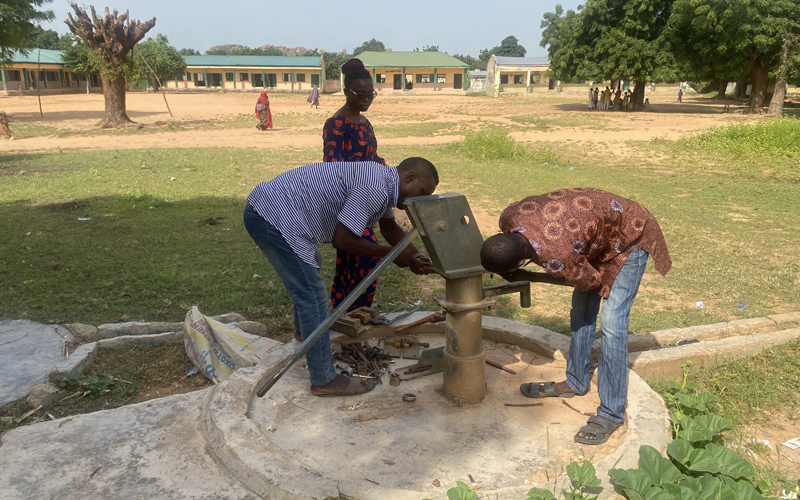+234 912 443 7374

At Rural Water Access Foundation (RUWAF), our Hand Pump Borehole Construction and Rehabilitation program is focused on bridging the clean water access gap in remote and underserved communities using cost-effective, durable, and community-friendly technology.
We begin by identifying communities with limited or no access to safe drinking water. Our field team conducts participatory needs assessments, surveys, and interviews with local stakeholders, including traditional leaders, women groups, youth, and health workers. This ensures that our intervention targets the most vulnerable households and aligns with local priorities.
RUWAF works with certified hydrogeologists to conduct geophysical surveys to locate high-yield groundwater points. Site selection considers proximity to households, safety, accessibility for women and children, and avoidance of contamination sources like latrines and waste sites.
Once the site is approved, we engage licensed drilling contractors to drill boreholes according to national standards. Construction includes: - Drilling to the appropriate depth - Casing and gravel packing - Borehole development and flushing - Installation of India Mark II or III hand pump (based on suitability) We ensure all materials used are high quality and resistant to corrosion and wear.
Water from the newly drilled borehole undergoes laboratory testing to ensure it meets World Health Organization (WHO) standards for drinking water. We test for contaminants such as E. coli, nitrates, iron, and other harmful substances.
We establish and train Water, Sanitation, and Hygiene Committees (WASHCOMs) made up of local volunteers. These committees are trained in routine maintenance, record-keeping, conflict resolution, and hygiene promotion. This ensures sustainability and quick response in case of minor faults.
As water access improves, we complement it with hygiene education sessions focusing on handwashing, safe water handling, and sanitation practices to reduce waterborne diseases and improve overall health outcomes.
In communities with broken hand pump boreholes, we carry out full assessments to determine repair needs. Rehabilitation includes cylinder replacements, rod and chain adjustments, apron reconstruction, and re-testing of water quality. This helps to revive abandoned infrastructure and restore access for hundreds at minimal cost.
RUWAF conducts periodic follow-up visits to assess functionality, provide technical support, and ensure continued community engagement. Monitoring data helps us track impact, identify challenges early, and strengthen our implementation model.